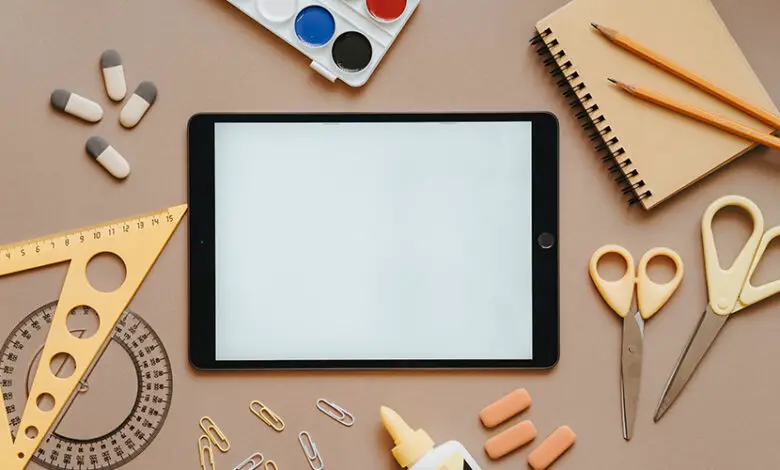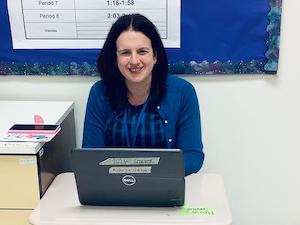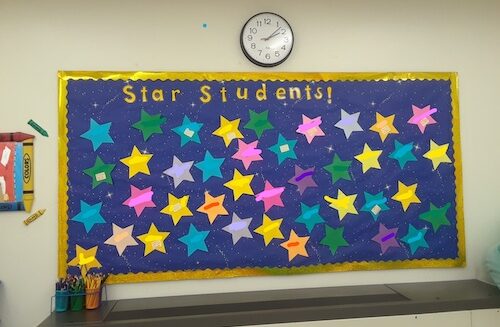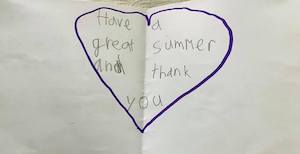
Becoming a paraprofessional and challenging perceptions of learning disabilities
Michelle Steiner is a paraprofessional – a classroom assistant – helping children with learning disabilities, something she herself has. She loves helping students to achieve their potential and in the process is challenging how society perceives people with a learning disability.
Here, Michelle tells us about her own experiences of living with a learning disability and her journey into becoming a paraprofessional.
My name is Michelle Steiner and I live with my husband Ron and our two cats. I work as a paraprofessional in a school, mainly with students who have disabilities.
I myself have a learning disability. It affects my ability to do maths, my visual perception, executive functioning, eye/hand coordination, and hand dexterity. I am also unable to drive.
Misconceptions of learning disabilities
Many people don’t understand what a learning disability is. I’ve met people who think that I don’t have a disability because they can’t see it or because I have accomplished many things.
I have also encountered people who think that because I have a learning disability I can’t learn and, as a result, set expectations too low. I want to bring awareness to what a learning disability is.

Becoming a paraprofessional
I became a paraprofessional because I knew that I wanted to work with students in a school setting. With my learning disability, I felt that the testing requirements and academic vigour of becoming a certified teacher wouldn’t be a wise choice.
Having obtained an associate’s degree in early childhood education, I worked in child centres and worked as a substitute assistant for two schools. I loved working with students but always wanted more.
I always wanted to get a bachelor’s degree but was told that I wouldn’t be able to go beyond community college. I had already struggled academically at community college.
When I was let go from a childcare centre due to downsizing, I decided to go to university. I found a program that interested me and had the least amount of maths.
Not working let me concentrate on school. Even more importantly, I got reasonable adjustments right away. I was able to get my bachelor’s degree in Community Programming for Americans with Disabilities.
Paraprofessional employment
After graduation, I worked in a few office jobs but missed working in a school. When I applied for the paraprofessional job I am in now, I thought I would only be put down as a substitute. To my surprise, I was hired as a permanent paraprofessional.
I have been with the same school district for 10 years, assisting students with disabilities, reviewing information, reading tests aloud, accompanying students in school and assisting the teacher. I have also created bulletin boards and other materials for students. My assignments have changed over the years.

Self-advocacy when you have a learning disability
As a paraprofessional, I also work to help my students with disabilities to be advocates for themselves. This helps them to find strategies that work for them to succeed.
Often, there is a stigma that surrounds a student with a disability. People view any disability support as giving students an unfair advantage. It is important to remember that fairness is not always equal.
Most people wouldn’t expect a person in a wheelchair to use the stairs. However, if a person with a learning disability receives adjustments, such as having the test read aloud to them, it’s sometimes seen negatively.
My goal is to help all people with disabilities, no matter what their condition. I wanted to empower people with disabilities to be their best selves.
Disability empowerment comes in different forms. Whether it’s helping a student study for a spelling test or sharing an article that I wrote. It’s about having that connection with others. Relationships are important and it is vital for people with disabilities to be connected.

My advice for anyone with a learning disability
My advice to anyone with a learning disability is to embrace it as a lifestyle and not chase a cure. Your brain learns differently and is neurodiverse. It is also important to know what you are good at and what you struggle with.
Everyone has strengths and weaknesses.
My second piece of advice is to use the disability support available to you to help in the areas you struggle with. If I don’t make use of the adjustments/accommodations available to you then life is likely to be trickier. There’s no shame in seeking and accepting help.
Most importantly, don’t give up! You can achieve your goals; you just may have to find a different way. Things may not always work out how you plan them, but often much better.
I can remember when I was young how I longed for my disability to go away. Now, I can’t imagine my life without it. I may not love everything that has happened to me, but I love the person it has turned me into.
My hope for other people with a learning disability is they will find ways to live an empowered life with purpose and pride.
You can’t control what others are going to say or think about you. The only thing you can control is your actions.
By Michelle Steiner
More on Disability Horizons…